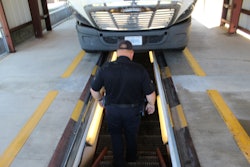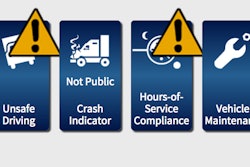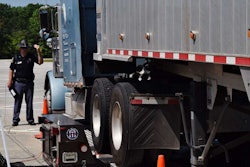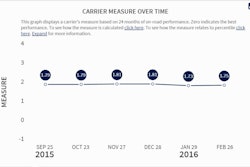CCJ readers see plenty of room for reforms to the U.S. DOT’s carrier rating system, the Compliance, Safety, Accountability program. The Federal Motor Carrier Safety Administration last month announced it has begun the process of overhauling the system, based on a Congressionally required study by the National Academies of Science, who last year recommended broad changes to the way the agency gather data and how it uses that data to make safety judgments of motor carriers.
Responding to the question of “What changes would you like to see be made to the CSA program?,” CCJ readers pointed to crash accountability, disparities in enforcement and alterations to the way the agency calculates its scores as prime areas for reforms:
J. Thomas: A major flaw in the system is there are states which have heavy enforcement and states which do not. If you as a carrier operate in the states where there is heavy enforcement then your results may be much different then those who do not. There is also a big difference in the states which review and correct Data-Q requests, and those who are good about submitting roadside inspections and then there are states that are months behind. No consistency in violations, Data-Q results and submissions.
Laina Vanbuskirk: I do not feel it is right that accidents hold points and ruin your CSA scores when they can be proven they were non-preventable. If the other party is charged at the scene of a DOT accident and no tickets are received by the company driver, I do not feel that this accident should be held against our company and our driver if we or the other party needed towed or if someone got injured. I believe that the Data-Q process should remove accidents that are proven to be non preventable! Why does the trucking company get “punished” for accidents that are completely not their fault and are non preventable.
Ken Landego: With the current calculation methodology, poor performance in one area can actually improve scoring in another area. Migrate from percentile rankings for Alerts to setting a standard threshold by BASIC for Alerts. Discontinue counting accidents in the Crash Indicator where it can be objectively established through accident investigations and reports that the other party was at fault. Change the Data Q review decision to be made by a separate group that would review all requests to ensure consistent application of the program across all geographies.
Larry Walker: One of my largest complaints is the “Crash” Indicator. If my driver is ran into by another vehicle and is not at fault then the accident should not apply to our CSA Score! This is particularly problematic when you have low annual mileage as we do because of the nature of our business. We operate under local exemption in some of the heaviest traffic hubs in the mid-west and 1 or 2 minor accidents can trigger an audit by the FMCSA. While we are totally compliant and work hard to maintain a great score, the audits always tie up our office for 4 to 6 days and leave our staff behind on their work for days following.
Micah Metzger: The current way the CSA Rating system works even if the driver no longer works for us, the driver’s bad record is still on our record. They need to determine if it the driver’s fault, for example following too close infraction or unsafe driving violations it would follow the driver not the company. If it was equipment violations it should follow the company.












